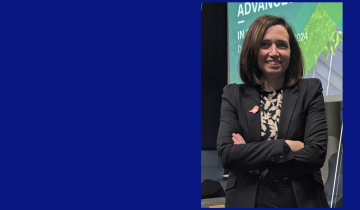How have religions become so powerful in the modern world? This question has been tackled by Paul Seabright in his latest book The Divine Economy: How Religions Compte for Wealth, Power, and People.
Religions have been studied through many different lenses in the past. However, Paul Seabright chose a rather unexplored perspective: economics. The author invites us to think of religions as platforms that compete for consumers by offering a range of flexible services. “Without economic resources behind them, the most beautifully crafted messages will struggle to gain a hearing in the cacophony of life”, writes Paul.
This insightful read caught the eyes of Financial Times journalists who decided to select The Divine Economy in the FT/Schroders Business Book of the Year 2024, along with 15 other titles out of 600 submitted.
The final short-list selection will be announced on September 18th. In the meantime, here is a selection of some of the raving reviews on Paul’s book.
“The Divine Economy looks at how religions attract followers, money and power and argues that they are businesses—and should be analysed as such.
Professor Seabright calls religions “platforms”, businesses that “facilitate relationships”. (Other economists refer to religions as “clubs” or “glue”.) He then takes a quick canter through the history, sociology and economics of religions to illustrate this. The best parts of this book deal with economics, which the general reader will find enlightening.”
“A wide-ranging book, full of fascinating examples from the world’s many religions…Using his economist’s tools to analyse the lasting power of the world’s religions, Seabright has produced an engaging and insightful book, which I found myself pondering long after I had read the last page. Religion is a powerful force in many parts of the world. The religions that continue to be successful in a rapidly changing environment, he concludes, keep evolving to remain so.”
By Jane Shaw
“Seabright has a great talent for addressing original questions. In this book, he reverses the familiar trope that religion is the antithesis of mere economics. On the contrary, he argues, religions are competing businesses: they attract people by providing services they value, from the mundane — a community in which to find a compatible mate — to the sublime — a sense of life’s meaning. Since these wants will not disappear, neither will religions. But, he concludes rather encouragingly, religions will fail if they choose to shackle themselves to tyrants. One hopes he is right.”
By Martin Wolf
See an associated DALLE image here.
“The Divine Economy is an ambitious work that attempts to think economically about something that so often seems beyond the grasp of the social sciences… As Seabright puts it, “Without economic resources behind them, the most beautifully crafted messages will struggle to gain a hearing in the cacophony of life.” It is rare and even refreshing to have a book about the rise of religion that concludes, in a sense, that it’s the economy, stupid… If there were a world in which people cared only about calculating their economic self-interest, the power of religion would be significantly blunted. But the world does not quite work that way—and, if Seabright’s analysis is any indication, it won’t any time soon.”
By Shadi Hamid
Find out about more reviews and info on Paul’s website.



